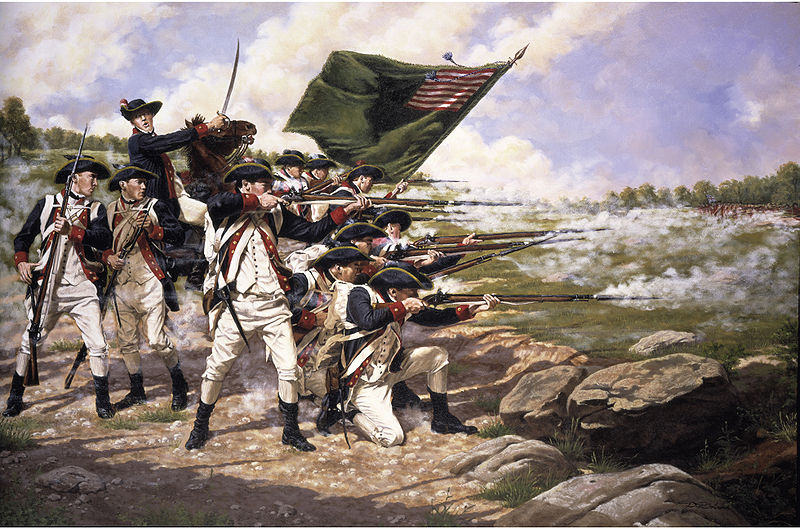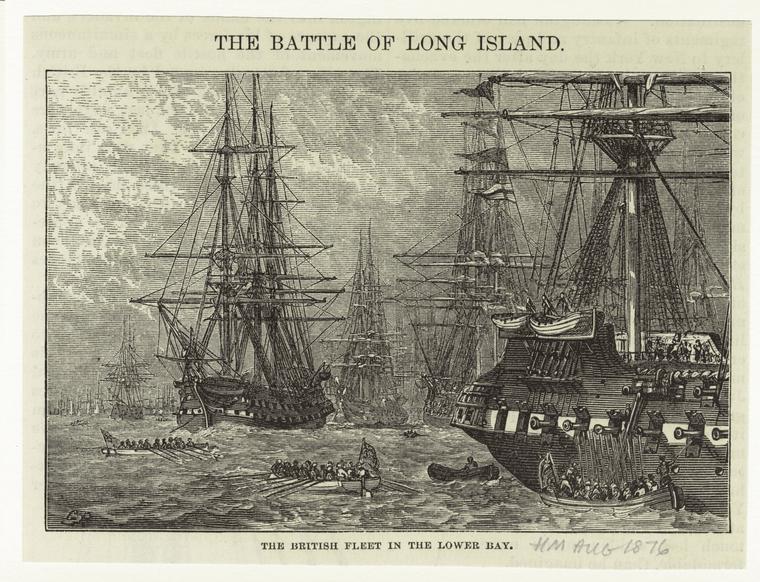The battle of Long Island, a British victory, began just after the Siege of Boston. As the British fled from their defeat, General George Washington anticipated they would go south and try to attack New York. He and his army traveled southward, in an attempt to cut them off before the attack.
As it turns out, the British had fled North and camped out in Halifax, Nova Scotia. They continued North, reaching the Hudson River on June 29, 1776. Four days later British General William Howe arrived on Staten Island to prepare an attack. The next day (July 4, 1776) was the day that the America’s Continental Congress declared the independence of America.

The Delaware Regiment at the Battle of Long Island | Public domain image.
While all of this was happening, George Washington had been preparing for battle in New York. He had created a wall of men with guns to defend the city from any attacks from the sea and placed 10,000 men on Brooklyn Heights to defend Manhattan. He was ready for anyone who would attack New York. There was just one problem: the British would be attacking Long Island, not New York.
On August 27, 1776 the British landed on Long Island, which is south of New York. Two days later, General Howe learned that the Americans had no one guarding the road leading North from Long Island into New York, but had defenses set up on all the other roads.

“The British fleet in the lower bay” depicts the invasion fleet under Admiral Howe assembling in lower New York Harbor in the summer of 1776, in preparation for the Battle of Long Island.
Using this information, Howe led his men up the North road. He then proceeded around to attack the Americans guarding the left road, who were led by General John Sullivan. While Howe’s army attacked Sullivan’s from behind, a German troop, which was in league with the British, attacked from the front. Sullivan fought as well as he could, but he was soon overpowered and forced to retreat behind the Brooklyn walls.
Howe, feeling proud of his victory, led his men and attacked the men guarding the right road, using the same technique. They, like Sullivan’s men, fought hard but were forced to retreat to Brooklyn.
On August 28, Washington heard of this attack and, in a panic, tried to come with reinforcements. However, the British forces were too strong and they forced the Americans to evacuate the city of Brooklyn entirely. In a frenzy, the American army fled. General Howe, blinded with pride, let them escape, thus missing an opportunity to take General Washington captive.
Later on that month, the British attacked New York and the Americans were once again forced to evacuate. Howe let yet another opportunity to take Washington captive pass, and this time he could have taken most of the American army as well. Had he done this, he might have greatly changed the outcome of the war.


